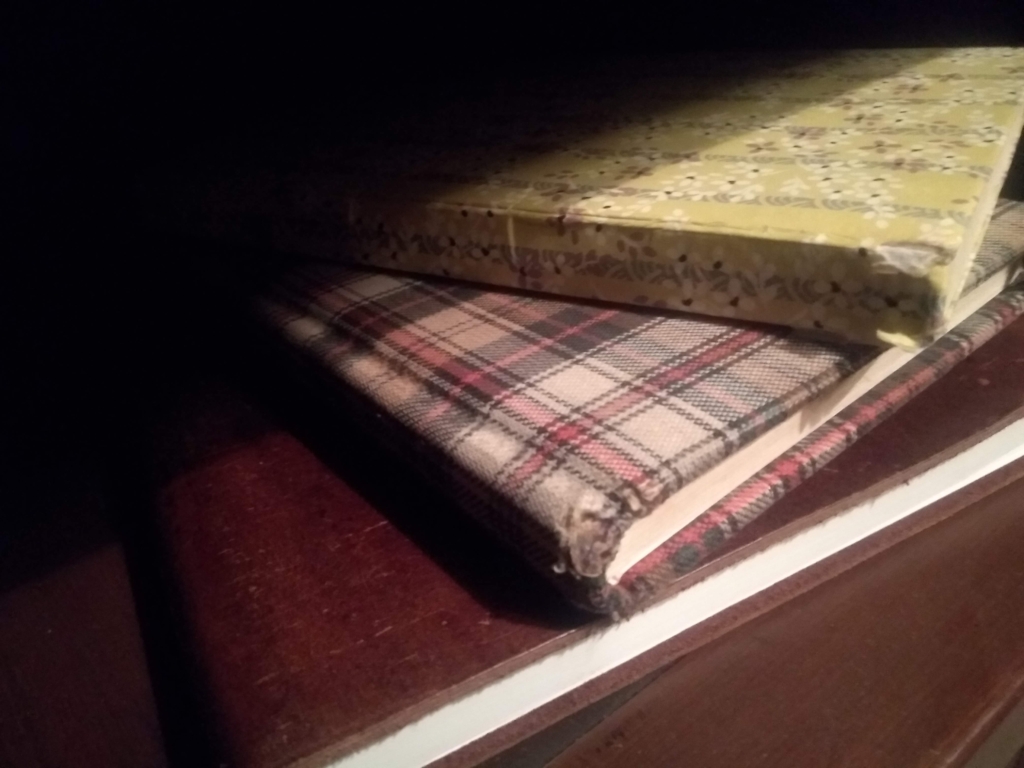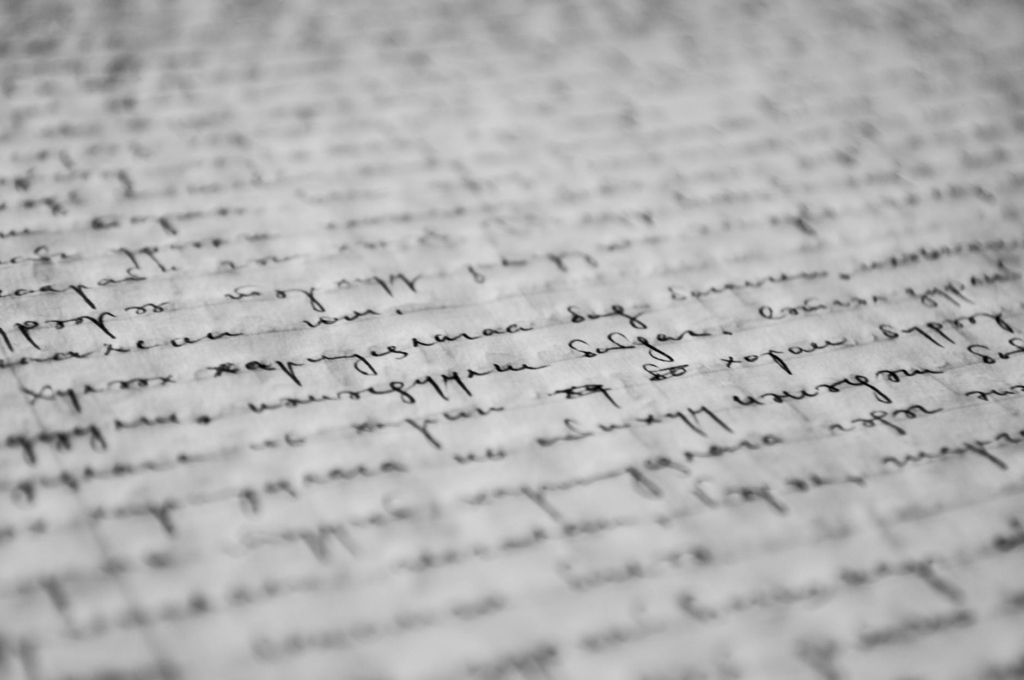Writing
I sat in the circle, legs crossed, elbows on knees, chin in my hands, lungs still heaving and my small body sweaty from running through the unmowed ball field with my friends at recess, and listened to the words as they fell from Mrs. Rouse’s lips.
I sat, my bottom on a rug with the letters of the alphabet worn and faded beneath me, a jumbled book shelf at my back, desks littered with workbooks to my side, the smell of late spring sunshine still caught in my hair, and experienced for the first time the almost supernatural power of words.
“He gives his harness bells a shake
To ask if there is some mistake.
The only other sound’s the sweep
Of easy wind and downy flake.”
I closed my eyes, not unwillingly, but not altogether of my own free will, transfixed by the image. I saw the horse, I felt the bite of the cold, the call of the woods: lovely, dark, and deep. I imagined the fading light of day, the fast approach of night, and I could feel it. It was more than a story, it was more than the sound of the words in my ears and the image in my brain. It felt real, as if I were there, living inside the words, for just a moment in time. No longer in Northern California, awaiting summer with the anticipation that only a child in the last weeks of school can. I was suddenly in Vermont, a place I’d visited less than 12 months prior. I was in a buggy on a country lane covered in snow. I was cold, a little sad, and awestruck by the beauty of frozen water. How softly, silently it fell, hiding the world beneath it.
Robert Frost’s words reached across a continent and six decades, from the armchair of a long dead, white-haired New England curmudgeon to a strawberry blonde, quirky California girl on a third grade reading time rug. Time and place slipped away in the truth of simply being there. Being there in the dusky light of a snowy wood. Being there in the cold, with the touch of sorrow that adds depth to the beauty.
It was one poem. One moment. Less than a minute of reading. And the universe suddenly opened before me. Everything that was, everything I saw, felt, and did was more real. I went home that day and told my mom “I’m going to be a writer someday.”
It was different than my previous childhood dreams had been: a princess, a ballet dancer, an archaeologist. It was more than an interest, more than a hobby. It was a need. Visceral, desperate, as necessary as breath. It was as if I’d magically found the core of everything that I was and for the first time in my life I understood desire. I wanted, as I’d never wanted anything, to have the power of words at my disposal. I wanted to put words on a page that could make someone else feel what I felt, see what I saw . To move them to another place, to another way of being than they had been before.
The gift of the power of words. I asked for it, prayed for it as I knelt by my bed at night. Worked to be worthy of it in every page I drew my pen across. Like a seer who asks not to save but to witness salvation I asked not to be the words, just the pen allowed to write them. Practicing how to feel an image, taste a word, or replay a memory in vivid detail to eyes that had never been there.
And they come. The words come at me. Rushing in so fast sometimes that my fingers can’t keep up. Arriving while I’m driving and have to pull over to the side of the road and dig through my purse to find a pen and a stray bit of paper to write them on. Or standing in the shower where all I can do is write the word in the steam caught on the door and hope it lasts long enough to rinse my hair and grab a paper to copy it down. Other times the words challenge me like a warrior and I have to fight for every syllable. Each punctuation marking another inch gained on a battlefield. Months and sometimes years spanning the beginning and the ending. And when the last word is written it’s my own heart lying on the page, broken and bleeding, and I wonder why I wanted this.
I write and write. It pours out until I have books full of ideas, random conversations, scenes captured in prose. A stack of thoughts as tall as I am, hoarded close out of hope and fear until the Word whispers a warning “share it, or it will be taken away.” Because that is the price for the power of words. Every writer requires a reader. Words are unnecessary for a solitary soul. So share I must because to lose the gift would be to lose myself every day I continue to live.
So now the words flow in and flow back out almost as swiftly as they come. In a letter, a text, a poem, blog, essay, or book. They run out past my own borders, beyond where I can see. Like messages in a bottle from a stranded wayfarer. I wish for them to make landfall. I wish for the words to be seen, to be read, but most of all to be felt. And few are the words that ever echo back. I wonder if what was sent was received. Sometimes I even dare to ask, “What did you think?” And people reply with compliments, “Oh you’re such a good writer.” I thank them, but that wasn’t what I wanted. Of course I’d like to be a good writer, but what I really want to know is “What did you feel when you read the words? What did they mean to you? What did you think about them as you read?” I want to see the heart and mind of another soul the way I’ve bared my own soul for others to see. But that’s more than any reader wants to share with a writer. So I remain forever unfulfilled, wondering if all the words matter, if they make a difference, or if they just take up space on a page, bytes on a hard drive or pixels on a screen. I wonder if the combined creation of heart, mind, and words is ever truly seen and understood. I wonder if the words took root in any heart but mine or if in the end it’s all an exercise in narcissism. A logophile’s version of my name in lights. The desire to be the messiah instead of the one testifying that He lives.
Then in the midst of my wondering, after exhuming grief and love, putting it down on a page, and letting it go, a few words come back to me. “It’s like you looked into my heart and found a way to say what I thought I could never explain.” “I can’t stop crying. I love reading something that feels like my soul has been heard, understood, and validated.” The words come to me, from a woman I’ve never met, who read an essay I’d written just a week earlier, and from someone I’d known for most of my life, who I hadn’t realized even read my work. They surprised me and filled, momentarily, a need that is always hungry and incredibly difficult to satisfy. The need to be truly seen, to be understood, to be loved for who I really am.
That is what I felt all those many, many years ago, over three decades, on Mrs. Rouse’s rug. I felt love in those words. Love for a moment in time captured on a page. Love for a place that will always exist in those words. Love for a writer who took the time to preserve that moment for me to discover too. A kind of invitation to step into something that moved him.
That’s the power of a story. It can take you forward and backward and sideways in time. You can be 9 years old one moment, 45 the next, and something that happened 96 years ago can be relevant in this moment and change your life in a way you never expected. Stories are the intersections of lives lived hundreds, thousands, entire ages of years apart. A single place where we stand fixed in an eternity that moves around us, ever changing and expanding.
That is what I do when I write. I am free to pull out a moment from anywhere in my life, anywhere in the life of the characters I create, and explore it in great depth and detail. It gives the moment freedom from time. It gives the moment the gift of eternal presence, to be all that it is in the now. And deep in my heart I nurture the hope that by giving my moments the gift of eternal presence I will find that my capacity to be, to experience, to see, and to know, to live, and to love right now, with no pen in my hand and no keys beneath my fingertips, will increase. So that someday, when the Word from whence my own words come writes “fin” at the end of my lines, He and I will both know that my life was as good a story as I could write.





